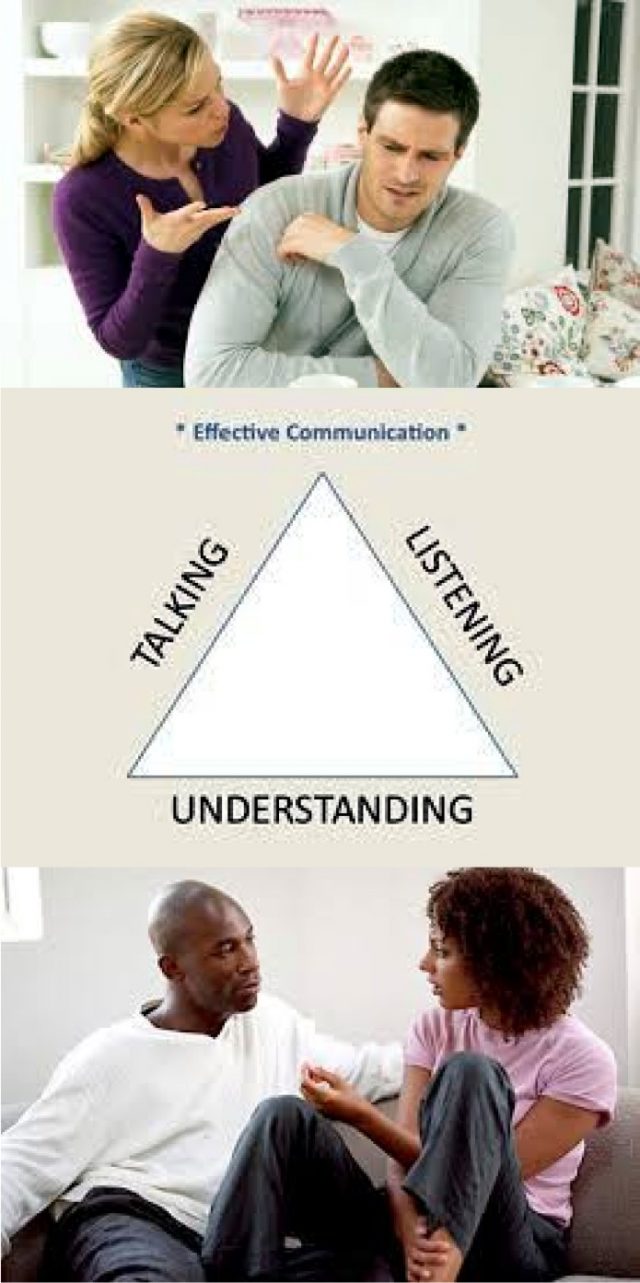Good communication is an important part of all relationships and is an essential part of any healthy partnership. All relationships have ups and downs, but a healthy communication style can make it easier to deal with conflict and build a stronger and healthier partnership. We often hear how important communication is, but not what it is and how we can use good communication in our relationships. In relationships, communication allows you to explain to someone else what you are experiencing and what your needs are. The act of communication not only helps to meet your needs, but it also helps you to be connected in your relationship. Without good communication in relationships, it is doomed to fail. It takes time, effort, attention and a lot of communication to find out what works best for the both persons in relationship especially at the beginning. For many couples, communication in relationship is all about talking, but there is so much more than just talking. Think of body language, communication style, attention, listening, emotion and honesty. They are all part of communication in relationships and these tips can be improved. You can improve your relationship today by putting into practice some of these tips for improving the communication in relationships. In communicating clearly, talk to each other. No matter how well you know and love each other, you cannot read your partner’s mind. We need to communicate clearly to avoid misunderstandings that may cause hurt, anger, resentment or confusion. It takes two people to have a relationship and each person has different communication needs and style. Couples need to find a way of communicating that suits their relationship. Healthy communication styles require practice and hard work. However, communication will never be perfect all the time.
• Set aside time to talk without interruption from other people or distractions like phones, computers, television etc.
• Think about what you want to say and be clear about what you want to communicate so that your partner hears it accurately and understands what you mean.
• Talk about what is happening and how it affects you, about what you want, need, and feel- use ‘I’ statements, such as “I need”, ‘I want’, ‘I feel’.
• Accept responsibilities for your own feelings.
• Listen to your partner, put aside your own thoughts for the time being and try to understand their intentions, feelings, needs and wants (this is called empathy)
• Share positive feelings with your partner, such as what you appreciate and admire about them and how important they are to you
• Be aware of your tone of voice
• Negotiate and remember that you don’t have to be right all the time. If the issue you are having is not that important, sometimes let the issues go, or agree to disagree.








